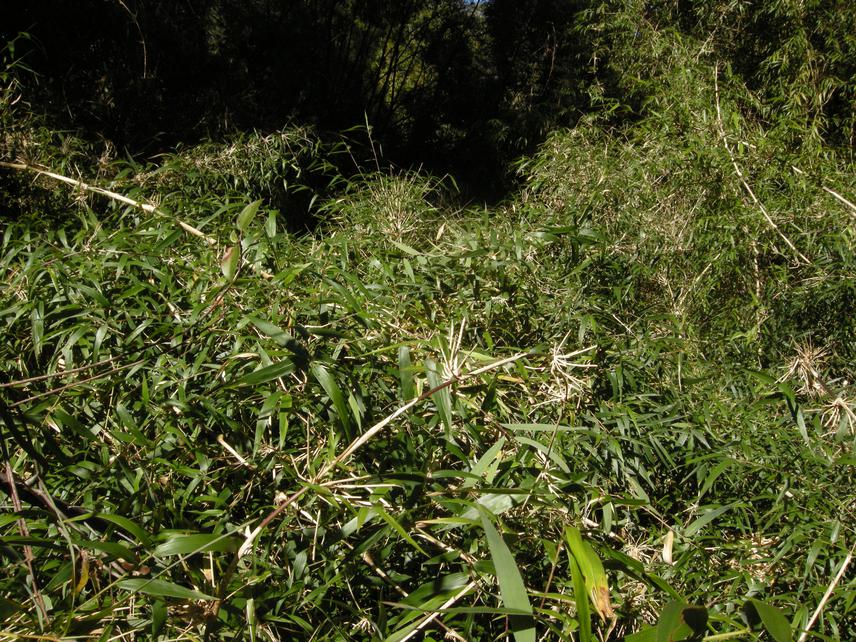Rocío Antonieta Fritz Tapia
This study aims to evaluate the current management of temperate rainforests in south-central Chile and aims to suggest practices to avoid dominance of the bamboo Chusquea quila. For this, both the use of social sciences and ecological knowledge of forest dynamics will be employed. The management recommendations derived from this study will benefit the local timber and logging sectors. Specifically, recommendations will be shared with small property owners in order to generate a long-term commitment between the scientific and local communities for the overall conservation and sustainable use of these ecosystems.

Above bamboo thicket.
The temperate rainforest of southern South America has been classified as a hotspot of biodiversity for conservation, given that 34% of the present plant genera are endemic and 90% of these are monotypic. According to the WWF, these temperate rainforests are one the most threatened ecoregions in the world (Global 200 initiative). Much of the degradation of these forests is due to, human-ignited wildfires, poor forest exploitation practices, and their conversion into pasture land. In south-central Chile, these ecosystems are threatened by the intensive forest exploitation as a product of the high demand for wood for heating and for construction by small property owners. Specifically, the opening of clearings for the extraction of wood promotes the entry of the bamboo Chusquea quila. This bamboo is able to stop the process of ecological succession by impeding the colonization and establishment of tree and shrub species. This proposal is based on a preliminary study carried out in south-central Chile during the spring of 2016, which documented both this pattern of bamboo dominance after the opening of the forest canopy and its effect on successional dynamics.
The general objective of this study is to characterize the temperate rainforest of south-central Chile and to implement logging methodologies that promote successional dynamics that allow for the sustainable exploitation of these forests. The specific objectives are:
(1) Determine how the community recognizes and values the forest;
(2) Determine what current logging techniques and management practices are currently in place;
(3) Elaborate and implement management practices in order to avoid colonization and later monopolization of clearings by the bamboo Chusquea quila.
In order to achieve these objectives knowledge of the social sciences and theory of forest dynamics will be used, providing a new perspective that seeks to avoid the arrest of succession associated with the colonization of clearings by bamboo. In particular, the recommendations derived from this study will allow for accelerated forest succession in logging areas. This knowledge will then be transferred to land owners in such a way that a long-term compromise between the scientific community and local community will be reached for the conservation and sustainable use of these ecosystems.